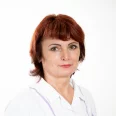
Výzkumný program kvalita života
1O skupině
Výzkumná skupina se zaměřuje na komplexní hodnocení kvality života onkologických pacientů napříč různými diagnózami a léčebnými modality. Kvalita života pacientů s onkologickým onemocněním je v současnosti jedním z klíčových témat v klinickém výzkumu, a proto se její sledování stává nedílnou součástí mnoha klinických (komerčních i akademických) projektů.
Naším cílem je nejen systematicky sbírat data o kvalitě života pacientů, ale také je správně interpretovat a využívat pro zlepšení klinické praxe, individualizaci péče a podporu rozhodovacích procesů. Sledujeme jak fyzické, psychologické a sociální aspekty života pacientů, tak i jejich subjektivní zkušenosti s léčbou.
Skupina je aktivně zapojena do mezinárodních aktivit prostřednictvím členství v EORTC Quality of Life Group, která sdružuje odborníky z celé Evropy a podporuje vývoj validních nástrojů pro hodnocení kvality života ve výzkumu i klinické praxi.
Naše aktivity přispívají k hlubšímu porozumění potřebám onkologických pacientů a k rozvoji péče, která je zaměřena nejen na léčbu samotného onemocnění, ale i na pacientovo celkové životní fungování.
2Náš tým
Vedoucí skupiny →
Pracovníci →
3Výzkumné projekty
Quality of life in Oncology: measuring what matters for cancer patients and survivors in Europe (EUonQoL) →
Kód: 101096362
Poskytovatel: Evropská unie, Horizon Europe (HORIZON-MISS-2021-CANCER-02)
Koordinátor: Fondazione IRCCS Istituto Nazionale dei Tumori
Spoluřešitel: doc. MUDr. Tomáš Kazda, Ph.D., Ing. Kateřina Procházková
Období řešení: 01. 01. 2023 - 31. 12. 2026
Anotace:
Cancer patients experience a variety of symptoms that include physical pain and emotional distress. In this context, the EU-funded EUonQoL project will develop, pilot and validate a unified system for the assessment of quality of life (QoL), the EUonQoL-Kit. The evaluations are based on estimations and preferences of cancer patients and survivors and will be validated in a pilot survey within this same group of people. This EUonQoL-Kit will be obtained through the combination of cancer patients' self-report evaluations and expert analysis from patient representatives, healthcare professionals, administrators, policymakers and citizens. The EUonQoL-Kit will be rolled out digitally across Europe in various languages. The objective is to provide a unified, standard European QoL assessment system.
Cíl:
EUonQoL aims to develop, pilot and validate the EUonQoL-Kit, a patient-driven, unified system for the assessment of quality of life (QoL) based on evaluations and preferences of cancer patients and survivors. The EUonQoL-Kit will be developed from a patient perspective, administered digitally, available in the EU27 and Associated countries languages, and applicable in future, periodic surveys to contribute to the EU’s mission on cancer. At the core of the EUonQoL there is the adoption of a multistakeholder, co-design methodology, engaging patient representatives, healthcare professionals, administrators, policymakers, and citizens in all project related activities. Existing QoL tools will be reviewed, scoping all relevant sources. This review will be used in the context of the codesign consensus with stakeholders’ and patients’ preferences to identify gaps and establish all QoL dimensions that are relevant from the perspectives of patients, clinicians, and society. A multidisciplinary researcher panel, composed by the most talented experts, will develop the EUonQoL-Kit that will be validated in a pilot survey using digital data collection within month 24 of the project. A total of 4,000 cancer patients and survivors will be enrolled through a network of EU cancer centers. An analysis of factors potentially impacting on cancer patients and survivors QoL, will also be performed. Implementation and exploitation strategies, as well as the linkage with other Cancer Mission projects and actions will be explored to develop future periodic surveys. EUonQoL is composed by research institutions, cancer centers, as well as scientific, professional, and patient representative organizations involved in cancer research, all with extensive experience and robust scientific background in the development of self-report QoL measures.This partnership fuels the ambition of EUonQoL to translate QoL information into future changes in cancer care policy and clinical practice.
Comprehensive Cancer Infrastructure for the European Union (CCI4EU) →
Kód: 101103746
Poskytovatel: Evropská unie, Horizon Europe (HORIZON-MISS-2022-CANCER-01)
Koordinátor: Organisation of European Cancer Institutes
Spoluřešitel: doc. MUDr. Tomáš Kazda, Ph.D.
Období řešení: 01. 05. 2023 - 30. 04. 2026
Anotace:
Cancer ranks as the second most common cause of death in Europe, and cases are anticipated to rise by 25 % by 2035. Nevertheless, significant disparities hinder access to research, innovation and quality care both between and within countries. While comprehensive cancer centres and networks have the potential to enhance care, research and education, the developmental levels of these centres vary widely. Addressing this issue, a European initiative through a capacity-building programme aims to alleviate disparities. The EU-funded CCI4EU project seeks to develop a cancer care programme with an inclusive approach tailored to each nation’s baseline status, fostering increased integration between research and care. This initiative will be supported by an education programme.
Cíl:
"Cancer is the second leading cause of death in Europe with an expected increase of about 25% by 2035. A wide and unacceptable variability in terms of access to research, innovation and quality care exists between and within countries. Possible solutions are an increase in knowledge by funding research, and a more equitable transfer of what we already know to everyone. Comprehensive Cancer Centers and Comprehensive Cancer Care Networks may be the core of CCIs that deliver quality care and provide resources to improve and integrate care, research and education. Data already available confirm that the level of ""CCI maturity"" in Member States is widely different, from some countries lacking CCIs completely. A European initiative, implemented in all Member States, based on a capacity building programme (CBP), will help reduce inequalities, in the context of other actions ongoing, such as CRANE, JANE and UNCAN. CBP is a complex intervention that requires multiple and integrated actions delivered to all the relevant stakeholders. CBP will be designed with an inclusive approach, tailored to the baseline status, capable of creating a change and improvement in research and care, with greater integration between them, supported by an education programme. It will operate at various levels: Individuals, Institutions and Systems. The CSA will implement the following steps: define CCI Maturity Model including quality indicators; profile the CCIs in each MS and a few ACs in terms of CCI presence and levels of maturity; design tailored CBP interventions, giving priority to MSs without any CCI; deliver online training courses open to teams in all MSs and ACs, implement targeted onsite interventions; scale up and sustain development; disseminate, exploit and report results. The CSA will maximize impact by bridging with the work of ongoing EU cancer research projects. National focal points will be key informants in making the links between the CSA, the EC and MSs."
Částečné ozáření prsu po konzervativní operaci časného karcinomu prsu pomocí extrakraniální stereotaktické zevní radioterapie. →
Kód: NV19-03-00354
Poskytovatel: Ministerstvo zdravotnictví
Příjemce: Masarykův onkologický ústav
Spoluřešitel: MUDr. Petr Burkoň. Ph.D.
Období řešení: 01. 05. 2019 - 31. 12. 2023
Anotace:
Standardní péče časných stádií nádorů prsu zahrnuje parciální mastektomii následovanou ozářením celého prsu (WBI) nejčastěji ve 20-ti frakcích. Částečné ozáření prsu (PBI) realizované v 5-10-ti frakcích a cílené na resekční lůžko je moderní léčebný postup vedoucí u indikovaných pacientek ke stejným výsledkům, nicméně s výrazným zkrácením doby léčby. Existuje několik technických možností pro PBI, jako je například intersticiální nebo intrakavitální brachyterapie nebo externí ozařování pomocí lineárních ozařovačů. Extrakraniální stereotaktická radioterapie (SBRT) je další aktuálně etablovaná technika záření. Jedná se o způsob léčby lokalizovaných nádorových lézí aplikací vysoké dávky záření v malém počtu frakcí s využitím speciální fixace a imobilizace spolu s lineárním urychlovačem vybaveným speciálním zařízením pro SBRT včetně managementu dechových exkurzí.
Cíl:
Cílem předložené studie designované pro průkaz non-inferiority SBRT v porovnání s WBI je zvýšit úroveň evidence pro zavedení SBRT resekční dutiny u indikovaných pacientů do denní klinické praxe.
Optimalizace frakcionačních režimů radioterapie patních ostruh: Monocentrická prospektivní randomizovaná open-label studie →
Kód: NU22-10-00479
Poskytovatel: Ministerstvo zdravotnictví
Příjemce: Masarykův onkologický ústav
Spoluřešitel: prof. MUDr. Pavel Šlampa CSc.
Období řešení: 01. 05. 2022 - 31. 12. 2025
Anotace:
Kolem 26 000 pacientů s nenádorovým onemocněním je v České republice léčeno ročně pomocí radioterapie. Většina z nich absolvuje ozáření patní ostruhy, jejíž prevalence se v běžné populaci pohybuje od 8 do 10 %. Patní ostruha představuje důležitý socioekonomický i zdravotní problém. Radioterapie pomocí rentgenového záření patří mezi standardní konzervativní léčebné metody s prokázaným protizánětlivým účinkem. S narůstající incidencí nádorových onemocnění lze nicméně předpokládat, že dostupnost radioterapie pro pacienty s patní ostruhou bude dále limitována, včetně omezení souvisejících s možnou pandemickou situací nebo jiným stavem nouze. Tato situace představuje nadcházející medicinský problém („unmet clinical need“), kde alternativní přístupy s výrazně zkrácenými frakcionacemi ozařování budou nutností, aby byla zajištěna dostupnost a účinnost radioterapie není patní ostruhy ale také dalších nenádorových onemocnění.
Cíl:
Cílem této monoinstitucionální prospektivní randomizované otevřené klinické studie je vyhodnotit nízkodávkovou jednorázovou radioterapii při léčbě syndromu patní ostruhy. Cílem projektu je realizovat randomizovanou studii, která porovnává frakcionované ozařování patních ostruh s jednofázovou radioterapií (non-inferiorita). Pacienti budou randomizováni do 6 skupin podle celkové dávky, celkem bude zařazeno 966 pacientů. Primárním cílem je porovnat sumární Calcaneodynia skóre (hodnotící krom bolesti také, mimo jiné, funkční schopnosti nemocného) po 3 měsících po radioterapii mezi frakcionovanou a jednorázovou radioterapií.
4Publikace
Publikace →
Procházková K, Kazda T, Šlampa P, Selingerová I. Quality of life assessment in radiotherapy. Klin Onkol. 2025;38(1):25-31. English. doi: 10.48095/ccko202525.
Burkon P, Selingerova I, Vrzal M, Holanek M, Coufal O, Polachova K, Andraskova V, Jhawar SR, Slampa P, Kazda T, Slavik M. Quality of life in early breast cancer patients after adjuvant accelerated partial-breast irradiation (APBI) in randomized trial. Sci Rep. 2025 Jan 9;15(1):1387. doi: 10.1038/s41598-025-85342-2.
Gleim N, Turcas A, Minniti G, Grosu AL, Kazda T, Harat M, Fernandez S, Niyazi M, Nicolay NH, Seidel C. Neuroprotection in radiotherapy of brain metastases - a European pattern-of-care analysis by the ESTRO CNS Focus group. Radiother Oncol. 2025 Aug;209:111000. doi: 10.1016/j.radonc.2025.111000.
Barrantes C, Rojas-Concha L, S Y Thong M, Apolone G, Brunelli C, Caraceni A, Couespel N, Bos N, Groenvold M, Kaasa S, Ciliberto G, Lombardo C, Pietrobon R, Pravettoni G, Sirven A, Vachon H, Gilbert A, Velikova G, Ferrer M; EUonQoL Working Group. Systematic review of the needs and health-related quality of life domains relevant to people surviving cancer in Europe. Qual Life Res. 2025 Apr;34(4):913-936. doi: 10.1007/s11136-024-03884-w.
Kazda T, Polachova K. Financial toxicity of radiotherapy for multiple brain metastases: Will it get worse or better? Neurooncol Pract. 2023 May 3;10(4):318-319. doi: 10.1093/nop/npad018.
Světlák M, Malatincová T, Halámková J, Barešová Z, Lekárová M, Vigašová D, Slezáčková A, Šumec R, Humpolíček P, Šedo J, Chládek J, Roman R, Gottwaldová J, Gescheidtová L, Čermáková Z, Thon V, Hrnčiříková I, Kazda T, Svoboda M. The effectiveness of three mobile-based psychological interventions in reducing psychological distress and preventing stress-related changes in the psycho-neuro-endocrine-immune network in breast cancer survivors: Study protocol for a randomised controlled trial. Internet Interv. 2023 May 5;32:100628. doi: 10.1016/j.invent.2023.100628.
5Spolupráce
EORTC
European Organisation for Research and Treatment of Cancer - Quality of Life Group (QLG)
Bezplatná nádorová telefonní linka
Po–Pá od 8:00 do 15:00 hodin
(+420)800 222 322








